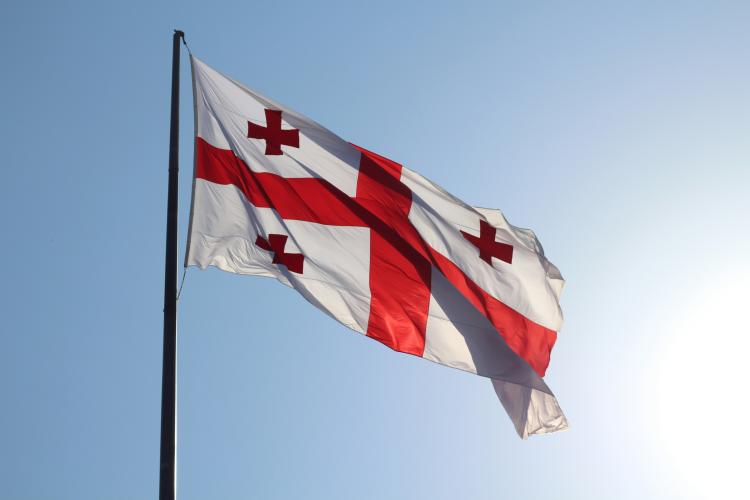
In a decisive vote on May 1, 2024, the Parliament approved the law “On Transparency of Foreign Influence” in its second reading, with 83 votes in favour and 23 against. The session was marked by heated debate, leading to the expulsion of four opposition deputies by the Parliament's chairman.
Government efforts to discredit civil society
On April 29, alongside the consideration of the controversial draft law “On Transparency of Foreign Influence”, official statements from a government-organised meeting displayed clear efforts to discredit and polarise civil society. This hostile environment directly affects the functioning of civil society organisations (CSOs), deepening political divisions within the country.
On April 30, CSOs issued a joint statement condemning the ruling team's vilification of CSOs. This unified response underscores the importance of defending the role of civil society in fostering democracy and protecting human rights amidst growing political tensions.
Use of force against protesters
The Chair of the United National Movement (UNM), an opposition party, sustained severe injuries during the April 30-May 1 protests against the draft law. The extent of his injuries raises concerns about alleged police brutality during the demonstrations.
The Public Defender’s assessment of the April 30 rally highlights significant concerns regarding the actions of law enforcement. From the questionable use of force, including pepper spray and tear gas, to reports of physical abuse against protesters and journalists, the events raise serious questions about the protection of fundamental rights in Georgia. The Public Defender calls for a thorough investigation by the Special Investigation Service.
Amid escalating tensions, the Parliament of Georgia activated a red-level security protocol at midnight on May 1, prompting mandatory evacuation. The Interior Ministry deployed water cannons, pepper spray, and tear gas against protesters attempting to breach the Parliament yard, denying the use of rubber bullets despite video evidence suggesting otherwise.
On May 1, the Ministry of Internal Affairs revealed that 63 individuals had been apprehended under Articles 166 and 173 of the Code of Administrative Offenses for engaging in acts of petty hooliganism and refusing to comply with lawful police instructions.
International concerns and support for Georgian protests
On May 1, both the U.S. State Department and President von der Leyen of the European Commission issued statements regarding the situation in Georgia. The U.S. State Department's Spokesperson, Matthew Miller, condemned the "Kremlin-inspired 'foreign influence' legislation" passed by the Georgian Parliament. Miller emphasised that such laws and the anti-Western rhetoric of the ruling Georgian Dream party threaten Georgia's path to Euro-Atlantic integration. He expressed support for peaceful protesters while condemning any violence against them.
President von der Leyen echoed these sentiments, expressing great concern over the violence in Tbilisi's streets. She recognised the Georgian citizens' commitment to democracy and urged the Georgian government to heed this message. Von der Leyen reiterated the European Union's concerns regarding the law on foreign influence and affirmed the Georgian people's desire for a European future. She called on the Georgian government to swiftly implement measures outlined as a candidate country for EU accession, emphasising that Georgia must stay on the path to Europe.
The British Embassy in Georgia also reiterated its close monitoring of unfolding events. It highlighted the Georgian citizens' resolute desire to join the Euro-Atlantic community, emphasizing the necessity of respecting their right to peaceful protest.
Stifling CSOs' ability to operate freely and advocate for social change
The advancement of the proposed law threatens to undermine civil society in Georgia, limiting the space for dissent and independent activism. The legislation, if enacted, could impose restrictive measures on CSOs and activists. This crackdown on civil society poses a grave threat to democratic principles and fundamental rights, jeopardising the progress made in Georgia's democratisation efforts. The vague language of the law broadens the definition of "foreign influence", leading to fears of reprisal against CSOs receiving international funding for their vital work. Without adequate safeguards for their rights and autonomy, these individuals and organisations face obstacles in carrying out their missions, ultimately hindering progress toward a more just and equitable society.
Amidst escalating tensions, the Georgian government faces a critical juncture in its journey towards Euro-Atlantic integration. It must prioritise dialogue with civil society, address international concerns, withdraw proposed draft law and uphold democratic values to navigate this path effectively. The situation warrants careful monitoring and analysis to assess its conformity with international standards and safeguard the rights of civil society actors.
